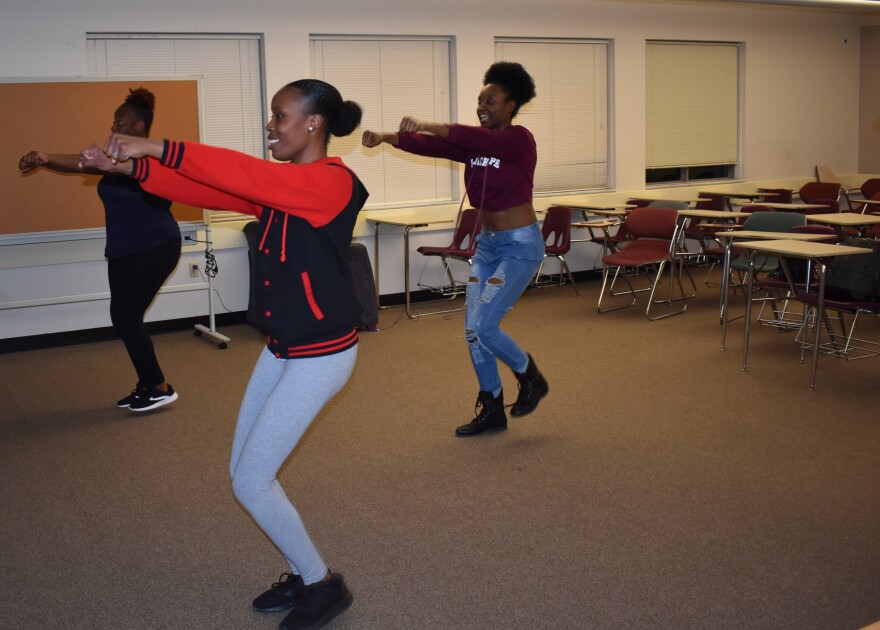As we near the end of Black History Month, we continue to feature local African Americans from across the region. Today, we profile a unique dance troupe at Florida Gulf Coast University, featuring the distinctive dance style called “step.”
Watching a practice for A Step Above Perfection, or ASAP, is a feast for the ears as well as the eyes as stomping feet, clapping hands and spoken word punctuate swift movements.
Florida Gulf Coast University’s only step team is made up of all female African American college students. These women are fast, loud and focused, but a routine usually dissolves into giggles.
ASAP’s President Anisa Bills is a senior-year health science student at Florida Gulf Coast University. Before serving two years as the team’s president, she reflected on an old friend who forced her to try out for her school’s step team years ago. She said she’s been attracted to the unique factors step offers that other styles of dance don’t.
“Your body is an instrument. That’s what makes it so different,” Bills said. “You don’t need music to dance to with stepping. You make the music with your body.”
The women of ASAP know that they honor a part of history with this style of dance. Step has roots in South Africa where, during Apartheid, mine workers were forbidden to talk to one another, so they developed “Gumboot.” By stomping their gumboots, which look like Wellington boots or rain boots, the workers formed their own communication system.
ASAP celebrates its tenth year on campu. FGCU is a university where 8.5 percent of the 15,000 students are black, as of the fall of last year.
Bills said that with more than 90 percent of her classmates being of other races, few have even heard of stepping. So, stepping is an opportunity to present herself through her culture in a way that she chooses.
“When we step it’s kind of like we’re showing the people that, like, we’re here and we are able to present ourselves and be heard,” Bills said. “We get to show ourselves and feel conspicuous but in a positive way.”
For ASAP members old and new, the team is a source of fulfillment. It is Danarria Stone’s second semester as a member of ASAP. Being apart of the team is important to her because of the bond the members have formed.
“Another reason I joined step was because coming to a school like this - I came from a school where we were 91 percent black - and coming here, I didn’t know exactly where I belonged,” Stone said. “So, step actually helped me because now I have a group of African American sisters.”
The girls follow a step routine created by the group’s leaders. When they practice, they focus on synchronicity and memorizing the routine.
“Now when I’m making up steps, I kind of try to put all that pride, all that desire to be seen and be heard and, you know, just be taken seriously into stepping, into my step, and into the performance.” Bills said.
ASAP mentors young step teams in the local community, and recently opened for “Step Afrika!,” the first professional company dedicated to the tradition of stepping.







